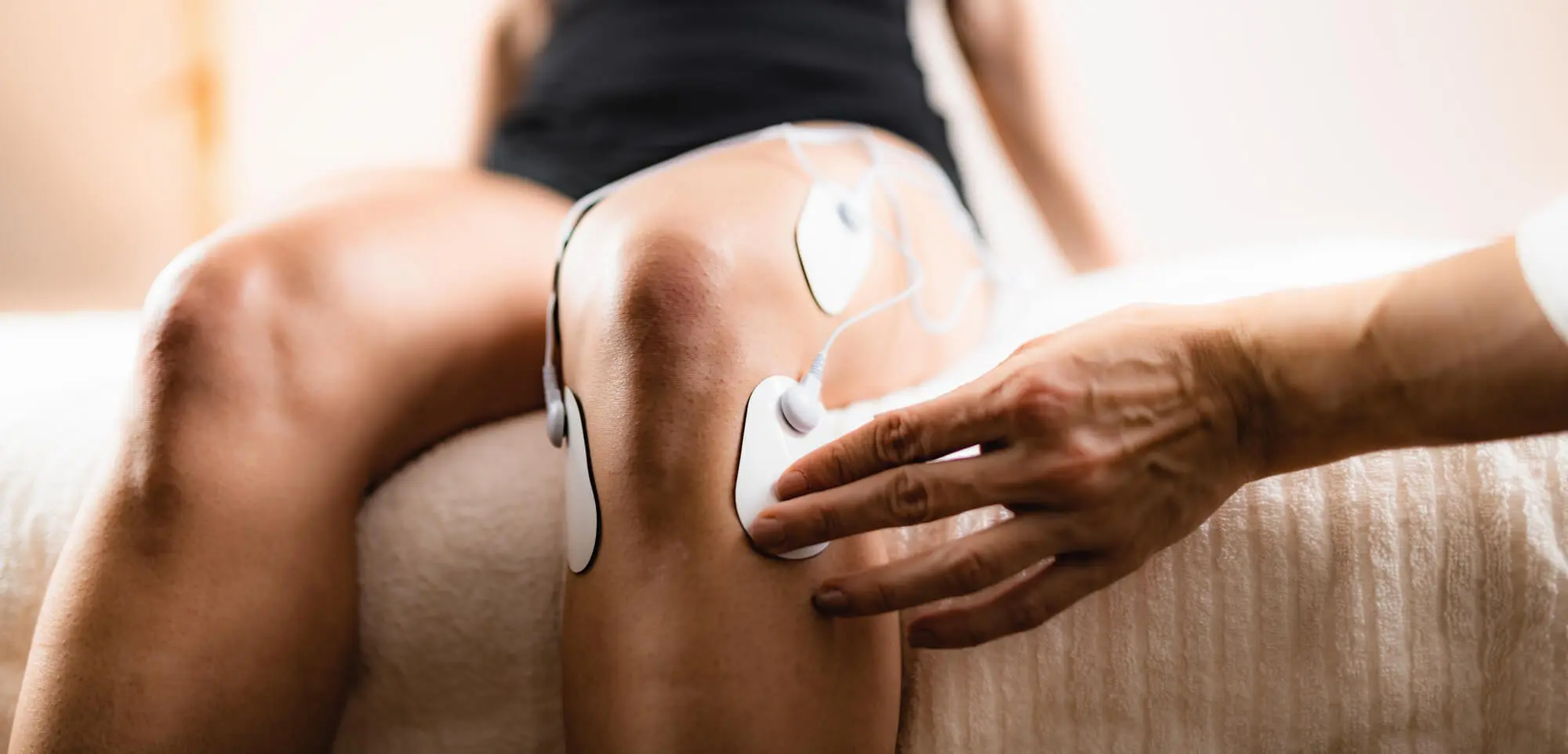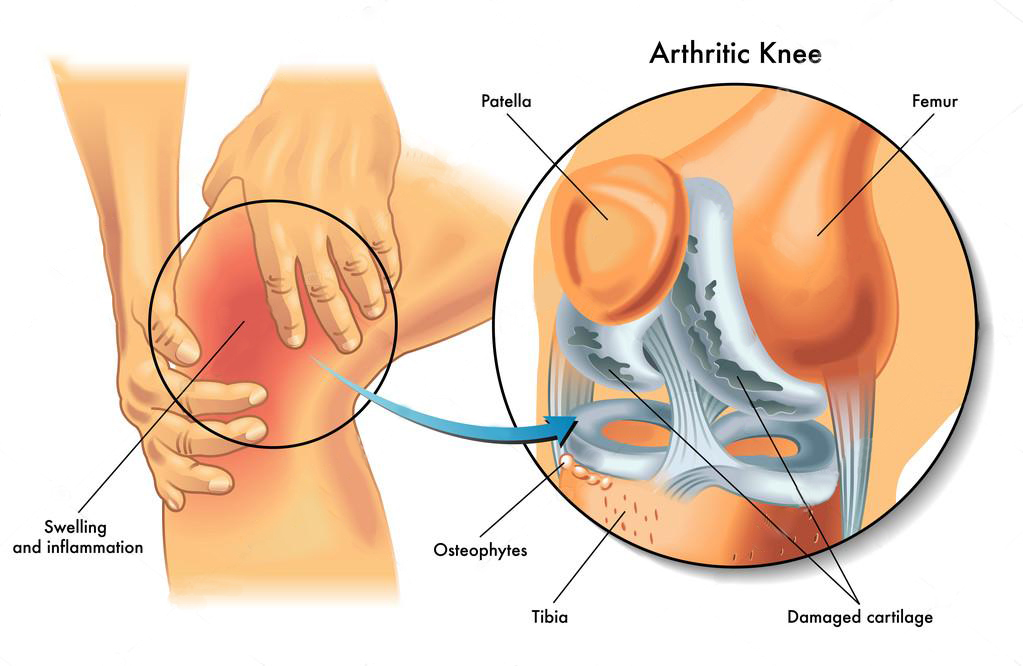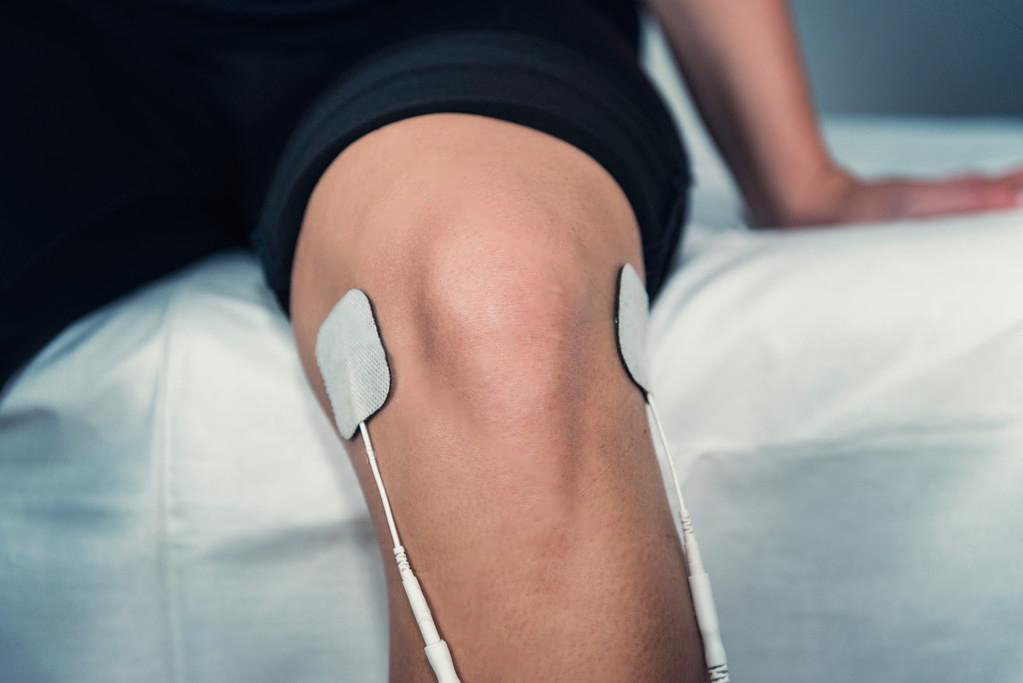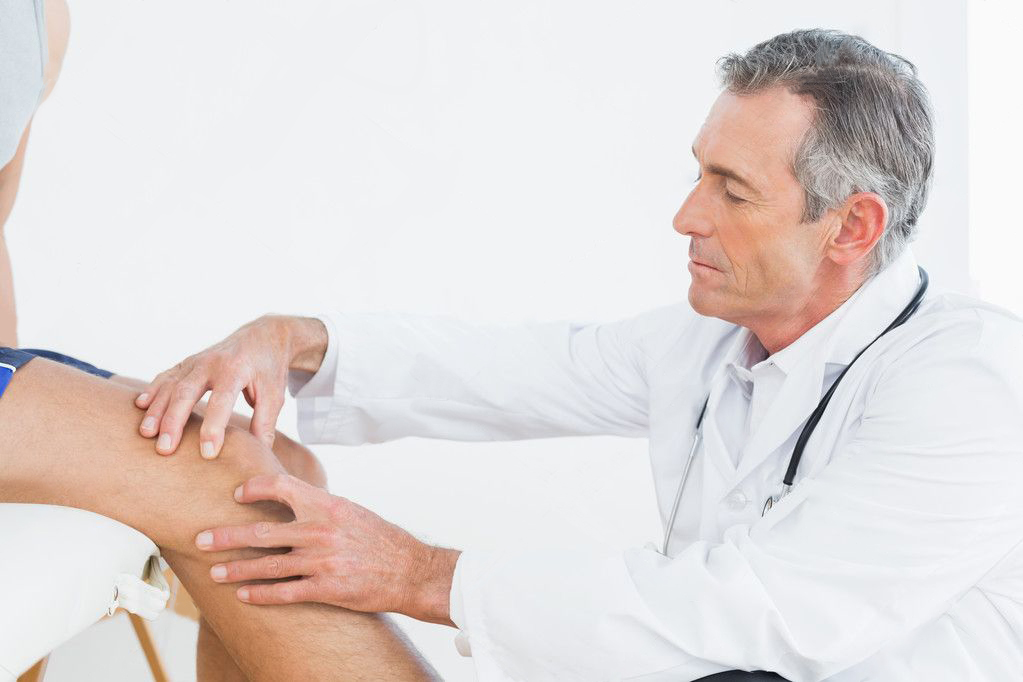Knee Pain

A Comprehensive Guide On Electrical Stimulation Therapy For Knee Pain
Read More
BY WILLIAM BOZEMAN
March 20, 2023
If you have knee pain, chances are that every aspect of your life is affected by your condition – and, you are certainly not alone.
Over a quarter of the US population today struggles with the consequences of knee pain, like reduced range of motion, unmanageable care costs, inhibited sports performance, and declining productivity.
If the prognosis is to live with chronic pain for years to come, it is only understandable to look for alternative treatments that don’t include popping pills or surgery. So, if you’ve come across at-home TENS for knee pain, you might be wondering whether this therapy is safe and efficient.
In this guide, you’ll learn the ins and outs of electrical stimulation for knee pain and get guidance on how to choose the best neurofunctional pain management method for your needs. Let’s dive in!
The management of pain through electrical stimulation is a field of study that goes back thousands of years.
However, it was only with the introduction of patient-wearable TENS units in the 1970s that transcutaneous electrical nerve stimulation became a valid pain treatment option for millions of people worldwide.
But is TENS as effective as it is promised to be? Here’s what you need to know about how TENS works to ease knee pain.
To understand how TENS for knee pain works, it’s important to clarify what the root causes of this condition are. Most knee conditions derive from damaged tissue in the joint area, often caused by excessive stress, overuse, direct trauma, degenerative diseases, and risk factors such as obesity and aging.
Common knee conditions that cause acute or chronic knee pain include:

Electrical stimulation is considered to be an efficient treatment for knee pain that allows patients to manage their discomfort without surgery or medications. Beyond the analgesic (pain-relieving) effect of this therapy, electrical stimulation also supports the regeneration of tissue in the affected area by promoting blood flow and reducing inflammation.
Thanks to the widespread availability of at-home TENS, people opt for this option to take advantage of the beneficial effects of electrical stimulation. TENS devices work by delivering mild pulses of electrical current to the affected area via electrodes (sticky pads).
The electrical impulses act by triggering the body of pain-relieving agents such as endorphins, which can counteract the feeling of pain and fatigue you might feel due to your knee condition.
But, even more importantly, it provides a concrete example of the “Gate Control Theory of Pain”: the electrical impulses “flood” the nervous system, thus closing the “gates” pain signals used to travel between the knee and the brain. In turn, this stops you from feeling pain during treatment.
Generally, this form of therapy is considered to be safe for at-home use.
Nonetheless, there are some contraindications worth keeping in mind. Consult your doctor before using TENS if you have one or more of the following conditions:
If your pain has not been properly diagnosed or you have a history of cancer in the past 5 years, you should also seek the advice of a healthcare specialist.
At-home TENS units are often the go-to alternative for people attempting to benefit from electrical stimulation. But while these devices are readily available over the counter or online, it’s important to be aware of the fact that not all units are FDA-approved, safe, or strong enough to ease the pain.
If you are in doubt or looking for a more personalized treatment for your knee pain, the Relatyv team can help.
If you have heard that electrical stimulation might benefit your knee condition and support the healing of damaged tissue, you might be getting ready to try TENS.
But what makes this type of therapy so popular? Let’s find out together.
Around 750,000 knee surgeries and knee replacements are performed each year, and this number is expected to rise alongside life expectancy rates and the prevalence of obesity.
That’s where the greatest advantage of TENS comes in. At-home TENS involves nothing more than placing electrodes on the knee area and choosing the right setting. In turn, this form of therapy allows you to manage pain in the long term, and without surgical procedures or pharmaceutical treatments.
Being non-invasive and generally safe, TENS can be self-administered within the comfort of your own home and at your convenience.
What’s more, 2019 estimations show that pharmaceutical or surgical treatments for conditions such as knee osteoarthritis cost each patient between $12,400 and $16,000, making TENS a far more affordable alternative.

Ultimately, at-home TENS units are widely available, which gives patients the chance to try out electrical stimulation for pain management without significant financial or lifestyle commitments.
But choosing commercially-available TENS devices over professionally-administered treatments comes with its fair share of drawbacks. Here’s what you should be aware of.
The reason why over-the-counter TENS units are safe to use at home and without any training is that these devices are only designed to deliver mild electrical pulses.
But if these limitations make them harmless, they also make them ineffective to treat severe, acute, and chronic pain.
A 2007 review that compares Conventional (mild) TENS, Acupuncture-Like TENS, and Intense TENS shows that Intense TENS is best to treat small areas (like the knee) with high-frequency electrical pulses.
While these pulses offer powerful analgesic effects, they are just tolerable by the patient. In turn, high-frequency TENS should only be administered by a specialized professional using medical-grade devices to avoid dangerous side effects.
An evaluation conducted in 2000 shows that conventional TENS and Acupuncture-Like TENS are effective methods of pain management and modulation. Nonetheless, commercially-available units might not be powerful enough to address the underlying cause of knee pain.
This means that with a TENS device, you might be able to feel a reduction of pain during and just after the treatment (up to 24 hours). However, if you are looking to support the active regeneration of tissue and kick-start the body’s healing process, at-home TENS might simply not be enough.
Because of the wavelength and power limitations of at-home TENS units, they cannot be classified as true electroanalgesia (the management of pain through electrical stimulation). What’s more, over-the-counter devices are created to be safely used by anyone, regardless of training or experience.
In turn, health insurance companies won’t cover at-home TENS for knee pain. You might be able to obtain coverage if your doctor deems this procedure “medically necessary” or as a treatment for postoperative acute pain.
Even if Medicare extends to TENS, coverage is only offered by professional treatments as part of a physician’s service or in conjunction with inpatient care.

A review published in 2019 estimates that patients live an average of 30 years with knee disorders such as osteoarthritis. This makes it imperative to find a treatment option that isn’t just effective, but also non-invasive and non-pharmaceutical.
Luckily, thanks to the advances in regenerative medicine, you no longer need to choose between depending on medications for the next three decades or getting surgery.
At Relatyv, we provide holistic neurofunctional pain management therapies for knee pain that are designed around your needs and lifestyle goals. So, you can do much more than simply ease your pain. You can restore your knee health, return to saying “yes” to your favorite activities and social events, and go back to enjoying your daily life.
Here are the methods and approaches we use to help you magnify your life:
As we have seen above, electrical stimulation can be an excellent addition to your pain management strategy. But at-home TENS units might not deliver the results you’ve been expecting.
That’s because although based on the same principle, commercially-available TENS units are unable to deliver the benefits of professionally-administered electroanalgesia.
At Relatyv, we use medical-grade FDA-approved devices to administer electroanalgesic treatments, offering long-lasting results and supporting the regeneration of damaged tissue in the knee joint.
If your knee condition has not been responding to other treatments, viscosupplementation therapy might be an option to explore.
Through injections of hyaluronic acid, we can help you restore the functionalities of the synovial fluid – the knee joint fluid in charge of maintaining all movements fluid, lubricated, and free of friction.
Lifestyle counseling is an important component of a comprehensive, ad hoc treatment journey. That’s because a lot of your knee pain might derive from lifestyle factors, such as being overweight, performing improper movements, overusing your knees, or leading a sedentary life.
At Relatyv, we strive to provide personalized pain management strategies that are safe, non-invasive, and effective. But our overarching goal is to help you restore your body’s capabilities, improve your life and health, and support long-lasting well-being – all without medications, surgery, or chiropractic care!
About the Author
Will is a healthcare executive, innovator, entrepreneur, inventor, and writer with a wide range of experience in the medical field. Will has multiple degrees in a wide range of subjects that give depth to his capability as an entrepreneur and capacity to operate as an innovative healthcare executive.
Share on Social Media




